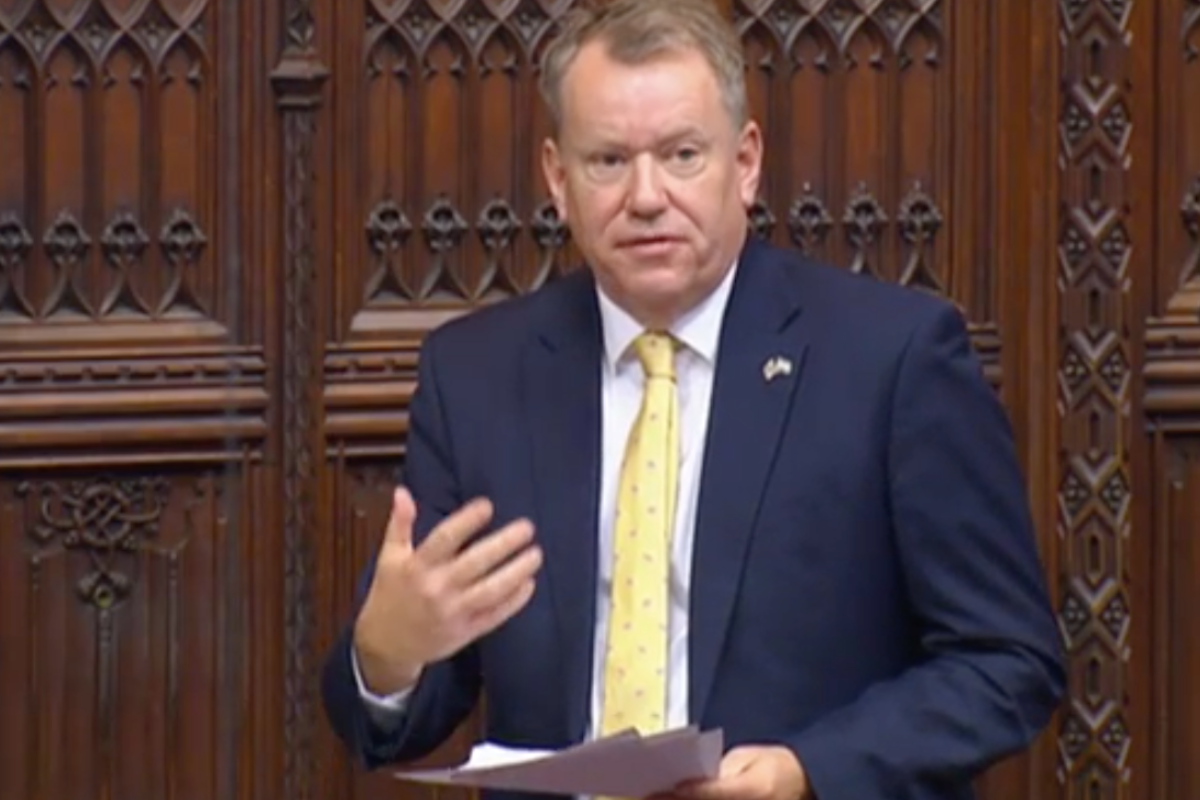
Baron Frost speaking during last week's debate
Photo: parliamentlive.tv
Peers support return of Parthenon sculptures
Former Brexit negotiator is among those calling for artefacts to be returned, arguing it should be on the condition of a new cultural partnership between the UK and Greece.
The majority of peers involved in a discussion about the future of the Parthenon marbles voiced support for handing back the artefacts to Greece.
Of the 12 peers who shared their opinion during a House of Lords debate last week (14 December), nine appeared to support returning the Parthenon sculptures, which are also known as the Elgin marbles and are on display in the British Museum.
They included former DCMS Minister Ed Vaizey and former Brexit Secretary David Frost, who said it is time for the UK government to make a “grand gesture” and return the marbles “as part of and on condition of a new, wider Anglo-Greek cultural partnership”.
READ MORE:
He added the partnership could facilitate loaning of famous works of art between the two countries and a bilateral foundation, largely financed by private individuals, that relaxes or eliminates barriers on cultural work and artistic performance between citizens of both countries.
Frost, who helped negotiate the UK’s departure from the European Union, also said: “I have never personally been so convinced by the moral, artistic and cultural arguments for the position we take. I think the Parthenon Marbles are a special situation and we should try and find a special solution.
“They aren’t just random museum exhibits. For as long as they are not seen as a whole they are less than the sum of their parts.
“For Greece they are part of the national identity, they are a national cultural cause.
“As we saw from the, I am afraid, slightly dismissive treatment of Prime Minister Mitsotakis the other week they do have the capacity to disrupt a relationship that really ought to be a lot better than it is.”
Vaizey said Frost was “precisely right”.
“This is not about looking back; it is looking forward at an extraordinary opportunity,” Vaizey added.
“It is a great opportunity to make an extraordinary gesture towards our friends and allies the Greek people, and a great opportunity to forge an enduring bond between the British Museum and the Greek people.”
DCMS Minister responds
Responding to peers on behalf of the government, DCMS Minister Lord Parkinson said the Parthenon sculptures are legally owned by British Museum trustees and therefore any decision on their future lies independently with them.
Parkinson said museum trustees believe “there is an advantage and a public benefit in having the sculptures divided” between the British Museum, a purpose-built museum in Athens and other museums in Europe – an opinion he said he agreed with.
He added that it is “very difficult” to see how the British Museum could loan the marbles to the Acropolis museum in Athens, as a prerequisite would be acknowledging the museum’s ownership of the loaned objects.
Earlier this month, Greek Culture Minister Lina Mendoni said Greece would not recognise the British Museum’s ownership of the Parthenon marbles, stating they “were stolen by [Lord] Elgin, abused, vandalised and sawed up to be in England”.
Medoni also said Greece “cannot accept either ownership, or possession, or jurisdiction [over the marbles] from the British Museum”.
Closing last week’s debate, Parkinson said that while the matter is a long-running debate, “it does not get in the way of the great friendship and co-operation between the Greek people and the British people, nor of either of their governments”.
Join the Discussion
You must be logged in to post a comment.